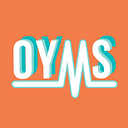Science X Real World Problems: Western Integrated Science
Let’s take a look at a truly interdisciplinary program focusing on preparing you to find solutions to the world’s biggest problems
Climate change, alternative energy, ozone depletion, the global pandemic… do you have an eye for the big issues of the world? If such solving such problems sounds intriguing to you, Western Integrated Science (WISc) might just be for you.
In this week of our Science X – series, OYMS takes a look at this unique undergraduate program offered by Western University in London, Ontario. We’ll provide a brief overview of what the program entails, possibilities for future careers and development, as well as program eligibility.
About the Program
Western Integrated Science (WISc) is a 4-year Honours program that embodies an interdisciplinary and collaborative nature. In general, you will have the chance of working with your peers to solve real-world problems. The classes rarely surpass 60 students and offer the opportunity of individualized attention from your professors.
The first year features a variety of courses covering core subjects such as biology, chemistry, chemistry, and physics. Below is the general first semester course-load of a first-year student in Integrated Science:
- Integrated Science 1000Z
- Biology 1001A (recommended)
- Calculus 1000A or 1500A
- Chemistry 1301A
- Physics 1301A or 1501A
- Elective course of 1.0 credits
Over the course of the program, students are encouraged to expand their breadth through their exposure to other disciplines of science such as astronomy, computer science, earth sciences, and statistics.
In third year, students have chances to engage with local companies and community organizations, and to be exposed to techniques and tools involved in project management. WISc students are also eligible to be a part of the Science Internship Program, whereby they will leave for a year at the end of their third year and return in their fifth year to complete year 4 of the program.
The fourth year of the program involves students conducting an independent research project (experimental or theoretical) under the supervision of a faculty member. Students will also be given time to refine their mentoring and leadership skills through interactions with new first-year students.
Careers and Pathways
Let’s take a look at your next steps after graduation from Integrated Science.
Perhaps you are interested in an internship or work-study. Various graduates of this program obtained positions such as Analytical Chemistry Technician, Research Assistant, Occupational Health and Safety Assistant and R&D Optical Instrumentation Co-Op. They work for organizations and companies such as Ingredion Canada, Spartan Bioscience and, of course, Western University.
Maybe you want to continue your studies and attend graduate school. Past graduates have gone on to programs such as Masters of Forensic Science, M.Sc. in Plant Agriculture and Doctor of Medicine. They attend institutions such as the University of Strathclyde, University of Cambridge, University of Guelph and some remain at Western.
If you would like to learn more about what others have done after this program, be sure to check out the news page of the Integrated Science website.
High school Requirements
So what if you are interested in applying for Integrated Science (OUAC Code: ES)? There are three mandatory high school course credits (or equivalent) as follows:
- English (ENG4U)
- Calculus and Vectors (MCV4U)
- Chemistry (SCH4U)
As well, two from the following courses are required:
- Advanced Functions (MHF4U)
- Biology (SBI4U)
- Computer and Information Science (ICS4U)
- Earth and Space Sciences (SES4U)
- Math and Data Management (MDM4U)
- Physics (SPH4U)
And an additional two Grade 12 U/M courses are needed to be eligible for admission.
About the Author
April Sui is a second-year student in Medical Sciences at Western University in London, Ontario. She’s currently working with Hashtag Health Podcast (based at UWO) and the International Predental Student Alliance. Bookworm, origami fanatic and French tutor, you can find her on LinkedIn or Facebook.
Sources
https://www.uwo.ca/sci/wisc/program_information.html
https://www.uwo.ca/sci/wisc/
https://www.uwo.ca/sci/wisc/news.html
https://www.uwo.ca/sci/wisc/future_students.html
